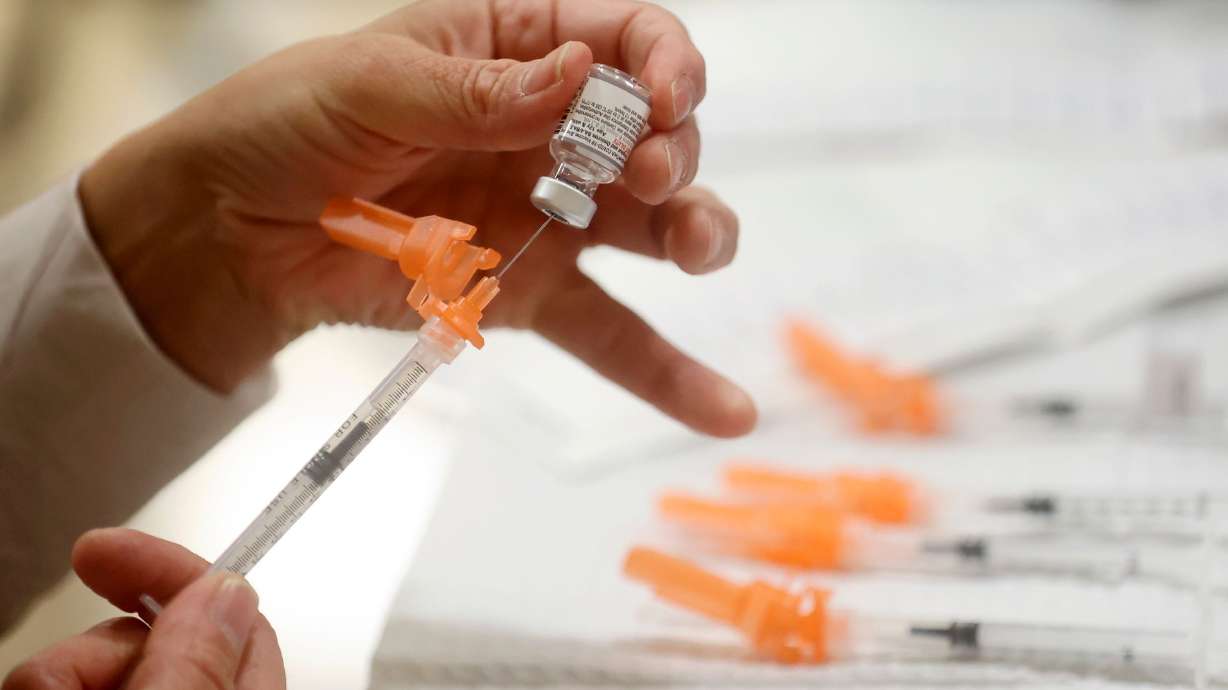Estimated read time: 5-6 minutes
This archived news story is available only for your personal, non-commercial use. Information in the story may be outdated or superseded by additional information. Reading or replaying the story in its archived form does not constitute a republication of the story.
SALT LAKE CITY — In the last year, COVID-19 has lost a lot of the spotlight it once had, which means as the weather gets colder and the number of COVID-19 cases likely trends upward, the response and the costs associated with the disease may be a little bit different.
Annie George, epidemiology supervisor with the Salt Lake County Health Department, said although COVID-19 tests cost money, they are still important. She said people can go see a medical provider or use a home test.
"It is still important to know for sure what you have ... because there are treatment options available," she said.
However, she said the main message she has is, "If you are sick, please stay home."
Personal responsibilities
George said COVID-19 helped people take measures that benefited community health, like staying home when they were sick and washing hands. She said at the beginning of the COVID-19 era a lot of other diseases were "practically nonexistent" because people were being so careful about washing their hands and cleaning high-touch surfaces.
George said people should be aware that even if an illness is not very severe to them, it could be severe for a co-worker, or someone the co-worker is in contact with.
It is still best for employers and others to make accommodations for people with COVID-19, or other illnesses, and help them follow Centers for Disease Control and Prevention guidance for quarantining, George said. When it is necessary for people to come back to work, they have other ways to keep others from getting sick, including wearing masks.
Dr. Leisha Nolen, Utah's state epidemiologist, said the CDC recommendations for COVID-19 have not changed, and people should treat it the same as they have before. That guidance includes wearing a mask if you are exposed to COVID-19, isolating for five days after a positive test and wearing a mask for five days after ending that quarantine, and testing six days after being exposed.
George said the CDC has announced it will be coming out with new COVID-19 guidelines, but it has not said when those will be released.
Disease surveillance
One of the other differences as the COVID-19 pandemic moves toward its fourth year is how the surveillance is done at the county, and how it is reported.
George said now the main thing they consider to determine whether COVID-19 is becoming an issue is syndromic surveillance — or how many visits to emergency departments and urgent care facilities report patients with COVID-19 symptoms. She also said increases in Utah usually trail other cities on the coasts. Regardless of testing, she said this method is a way the health department can continue to track.
George said they also still watch hospitalizations, but it is a "lagging indicator" that gives more information about severity.
She said the Salt Lake County Health Department has a grant that is allowing it to track data for RSV, COVID-19 and flu and it will soon be replacing its COVID-19 information with a website that shows syndromic surveillance and hospitalization data for all three viruses.
"We're really gearing it toward more ... simplified information so that the general public can understand," she said.
Vaccines will also have a price tag
When the new vaccine becomes available, likely sometime in October, it won't just be handed out to anyone like the previous COVID-19 vaccines — it will come with a price tag. Cindy Wynette, COVID-19 immunization program manager with the Utah Department of Health and Human Services, said that price will most often be covered by insurance, including Medicare and Medicaid.
She said there will also be some programs that will offer the vaccine to people with no insurance or whose plans do not cover the vaccine. She suggested going to local health departments, community health centers and some Walgreen and CVS pharmacies for the vaccine.
The bivalent vaccine is still available free of charge for anyone, until the new vaccine becomes available. Wynette said people who have not gotten the bivalent vaccine should consider getting it since it addresses the current omicron subvariant and initial studies show it also provides protection from the eris variant that is currently rising in the U.S.
Both Wynette and George said people who are immunocompromised could talk to their doctors and consider getting a bivalent booster dose now or wait until the fall vaccine becomes available.
George said the county health department strongly advocates vaccines, for COVID-19, the flu and RSV, for those they are approved for.
She said when the new COVID-19 vaccine is available in the next month, the health department "would strongly suggest everyone" receive the vaccine.
She said research into the RSV vaccine helped companies create the COVID-19 vaccines more quickly. The RSV vaccine is still waiting on some approval from insurance companies, but it will also be available soon.
Rich Lakin, immunization director with the Utah Department of Health and Human Services, said it is already available in some places with a prescription from a doctor until it is generally approved by Utah's physician board and available without a prescription, which he said is expected at the end of September.
George said vaccines for RSV are especially important because there are no treatments for it like there are for COVID-19 and the flu so vaccination is the best tool to prevent the spread of RSV. She said the vaccine is approved for people over 60 and pregnant women.











